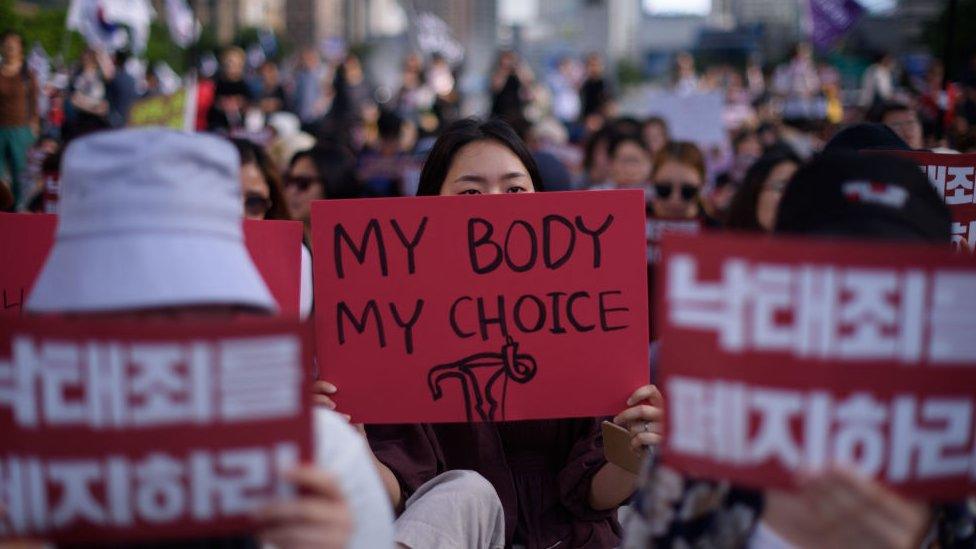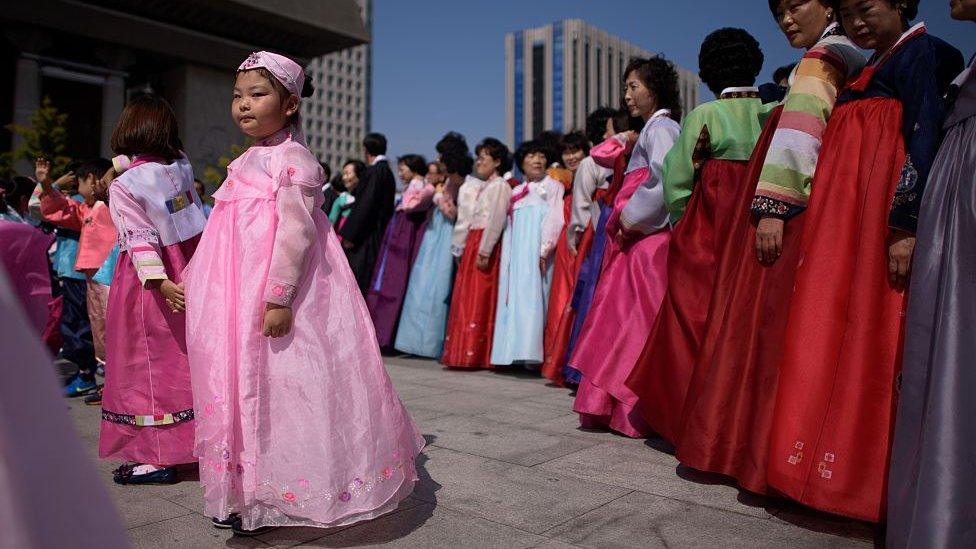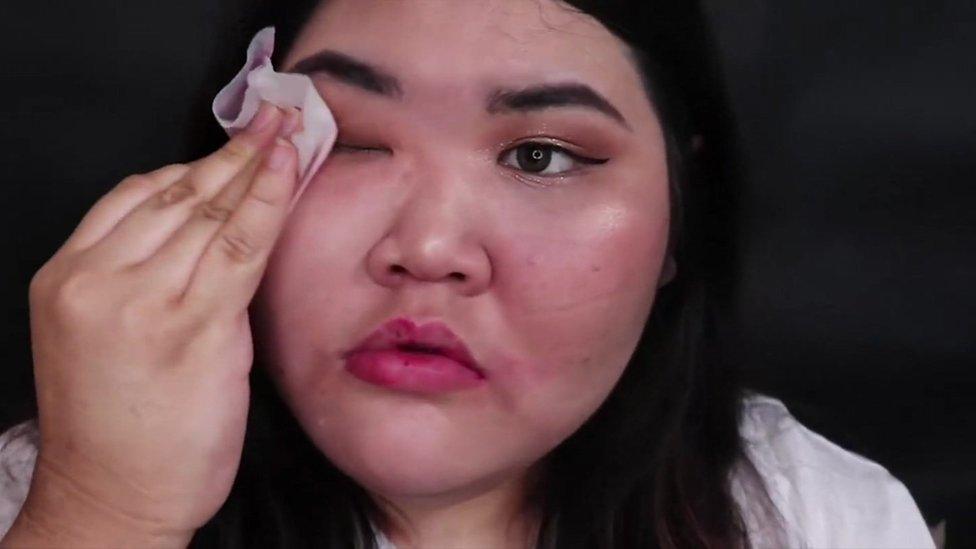South Korea must end abortion ban by 2020, says court
- Published

Campaigners say South Korea's abortion ban stigmatises women and endangers their health
South Korea's ban on abortion has been ruled unconstitutional in a historic court decision.
The country's constitutional court ordered that the law must be revised by the end of 2020.
Under the 1953 ban, women who have abortions can be fined and imprisoned, except in cases of rape, incest or risk to their health. Doctors who perform the procedure can also face jail.
South Korea is one of the few developed countries to criminalise abortion.
On Wednesday an opinion poll found 58% of the public favour abolishing the ban.
The law was reviewed after a challenge from a female doctor who was prosecuted for performing almost 70 abortions. She said the ban endangered women and limited their rights.
The push for change comes from a burgeoning movement fighting for women's rights in South Korea. Pro-choice campaigners say the abortion ban is part of a broader bias against women in the country.
South Korea is home to a large number of evangelical Christians, however - and some want abortion to remain illegal because they say it forces women to think deeply about the decision.

Tears on both sides

As the cheers of celebration rippled through the hundreds who'd gathered to fight to overturn the abortion ban, two women stood hugging. One in tears. She'd had an abortion in the past. She'd hid her decision for years, even from her close friends, because she felt ashamed. But today she said she felt she could breathe and that her choice finally felt valid. The stigma was gone.
Others in this mostly young group of women told me this landmark ruling finally made them feel that female voices were being heard in what is a deeply patriarchal society.
On the other side of the road a group of anti-abortion activists shouted "down with feminism". They believe this ruling will not stand and that there is a chance to fight on.
The Constitutional Court's decision has put the next step into the hands of politicians, who have until December 2020 to re-write the law. These conservative groups believe they can influence that process.

How widespread is abortion in South Korea?
Despite the restrictive law, abortions are widely accessible in South Korea and can be carried out safely.
Women who end their pregnancies are rarely prosecuted, but activists say the ban puts their health at risk and generates social stigma.
Teenagers who get pregnant are often forced to end their studies or transfer to remote institutions, according to youth rights groups.
Allow X content?
This article contains content provided by X. We ask for your permission before anything is loaded, as they may be using cookies and other technologies. You may want to read X’s cookie policy, external and privacy policy, external before accepting. To view this content choose ‘accept and continue’.

A survey last year found that one in five women who had been pregnant had had an abortion, and just 1% fell under the legal exemptions, AFP news agency reports.
An estimated 50,000 abortions were carried out in South Korea in 2017, compared with government estimates of about 169,000 cases in 2010.
This fall is largely attributed to improvements to contraceptive services and products, which are now widely available, and a better understanding of birth control.
- Published13 January 2017

- Published16 August 2018

- Published10 December 2018
